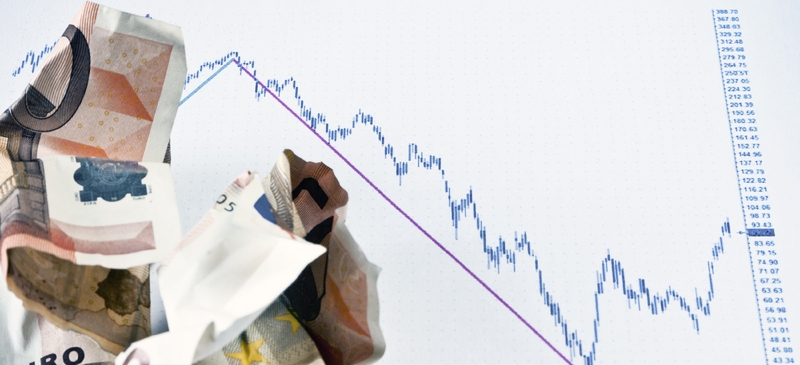
The euro's success requires liberalisation
Critics of the euro zone have long claimed that it suffers from structural flaws that threaten its long-term survival. The Greek sovereign-debt crisis has done much to vindicate these misgivings. It is now obvious that comprehensive reforms are essential if the euro is to survive. So far, most attention has focused on the need to tighten policy coordination among euro countries. But just as important is that euro-zone members embrace, rather than resist, the need to free up their economies. So long as euro nations remain ambivalent about liberalization, the euro will rest on weak foundations.
Before the euro was launched, economists liked to debate whether Europe was, or would ever be, an "optimum currency area"—that is, a region in which the benefits of sharing a currency would outweigh the disadvantages. Few believed the euro zone was such an area in 1999, but optimists thought it stood a good chance of becoming one in time. For it to do so, at least two things had to happen. First, economic integration had to increase: The euro zone had to be underpinned by a single market in which goods, services, capital, and people moved freely across borders. Second, national labor markets had to become more flexible in order to compensate for the loss of the exchange rate as an instrument of adjustment.
Optimists essentially believed that the euro would have a galvanizing effect, that its introduction would help to drive many of the changes necessary for its success. Were they right? The answer is: only up to a point. The introduction of the euro did spur greater market integration. For example, trade and foreign direct investment flows between euro zone members grew slightly faster in the years following adoption than did those between euro zone members and other EU countries. The single currency also boosted financial-market integration, notably by encouraging the emergence of a large, euro-denominated market in corporate bonds. By and large, though, the euro's introduction seems to have provided more of a fillip to firms than to governments. It encouraged market-led integration, but weakened policy-led liberalization.
Consider the EU's single market. There is little evidence that the introduction of the euro has increased participating governments' enthusiasm for lowering barriers to trade. Compliance with the EU's single market rules, in fact, is markedly weaker among members of the euro zone than it is among EU countries more generally. It was a coalition of euro-zone members, led by France, that watered down an ambitious proposal in 2005 by the European Commission to free up trade in services. And old political habits, such as the instinct to protect "national champions" from foreign takeovers, seem to be more entrenched within the euro zone than outside. National gas and electricity companies, for example, are harder to take over in euro members like France and Germany than they are in non-members like the U.K.
It would be wrong, of course, to imply that economies within the euro zone have not been reformed since the single currency was launched. There is unquestionably more competition in sectors such as transport, energy and telecommunications (which only a decade ago were the preserve of state monopolies). The trouble is that reforms have not progressed far enough. In too many euro-zone countries, reforms have been modest, half-hearted, and uneven. Labor markets, for example, look much as they did a decade ago, with privileged "insiders" still enjoying high levels of job protection. This has thrown most of the burden of economic adjustment throughout the recent downturn on to "outsiders" with lower levels of job protection.
Far from spurring economic liberalization, the euro's introduction may even have slowed it. Although the European Commission has done its best to lower trade barriers and introduce more competition in product markets, it has often faced recalcitrant member states—particularly in the euro zone. "Economic and Monetary Union," it turns out, is a misnomer. As a recent report by former EU Competition Commissioner Mario Monti points out, it is among members of monetary union (like France, Germany, Greece, Italy and Spain) that support for the EU's single market seems to be weakest. It is also striking that the countries with the freest and most flexible labor markets in the EU (Britain and Denmark) are outside the euro, while those with the most rigid ones (such as Greece, Spain and Italy) are inside.
Why did many countries think the euro would spare them from the very reforms that were necessary to make their membership a success? The answer is that they saw the euro as a shield, rather than a corset imposing disciplines of its own. In effect, they believed that the euro offered them a free lunch. Countries with traditionally weak policy frameworks would import German monetary credibility and gain shelter from periodic squalls in foreign-exchange markets. Such protection, governments thought, would reduce the pressure to reform their economies. Indeed, many European politicians saw the single currency as a weapon with which to fight off a despised ideology outside their borders: "Anglo-Saxon neo-liberalism."
If European politicians were as hostile to economic liberalization as their rhetoric has often suggested, their countries should never have joined the euro. A shared currency cannot rest on a patchwork quilt of national markets that are insufficiently flexible and imperfectly integrated. If euro zone members believe that goods, services, capital, and people should move more freely within national borders than across them, they should not be sharing a currency. But seeing as they do share one, carrying on with the status quo is not an option. If governments are to make their countries' membership of the euro a success, they must embrace the liberalizing reforms that many have spent the past decade postponing or decrying.
